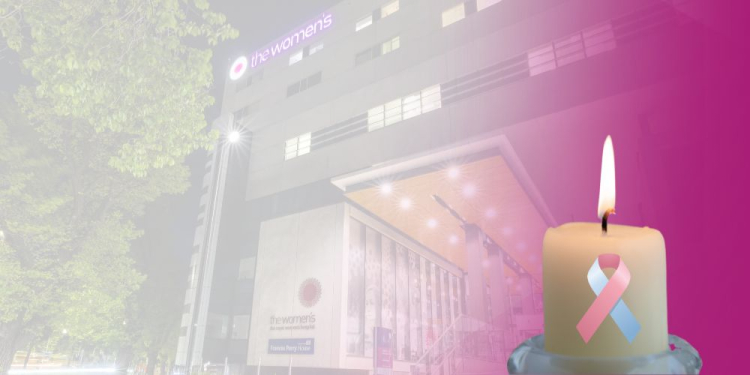
Tonight, as Australians light candles for the global Wave of Light, the Women’s will light up its building. This is to remember babies lost during pregnancy or shortly after birth. But for our hospital, this act of recognition extends far beyond a single evening.
Nina Grillo is the Perinatal Bereavement Coordinator at the Women’s. She is a social worker who helps families cope with pregnancy loss and baby death. She helps them create memories, navigate grief, and parent in the briefest of moments.
“When a baby dies, it’s a time where hello and goodbye happen at the same time,” Nina says. “Our role is to support families in parenting their baby; however short that parenting may be.”
The hospital’s approach centres on the understanding that loss at any gestation is real and deserves recognition.
Families are offered counselling, follow-up care, time to create memories and say goodbye. Keepsakes like hand and footprints, professional photos, and cuddle cots help with care. Cuddle cots are cooling devices that let families spend more time with their baby.
Bereavement rooms have recently been redesigned to feel warm and homelike. The Balam Balam Remembrance Room, named for the Wurundjeri word meaning “butterfly,” gives families a calm space to come back after discharge. Here, they can spend quiet time with their baby.
Culturally responsive care is embedded in the model. For First Nations families, this can include smoking ceremonies, possum skins, and coolamons to cradle their baby.
“We tailor our care to each family’s personal cultural and spiritual needs,” says Nina.
Language, too, plays a vital role in healing.
“Gestation doesn’t equal attachment,” Nina says. “Terms like ‘chemical pregnancy’ or ‘non-viable fetus’ can feel dismissive. The words we use should reflect what the loss meant to that person.”
Staff are supported, too. Ongoing bereavement training, regular reflection sessions, and debriefs help ensure that compassionate care is consistent across disciplines.
“This work touches everyone in the room,” Nina says. “Support doesn’t stop with the patient.”
Each October, the Women's hosts a memorial service for families to honour and remember their babies. But remembrance is woven into daily practice.
“Families need space to grieve and to have their experience heard and respected,” Nina says. “Saying, ‘I’m sorry your baby died,’ and using their name … those moments matter.”